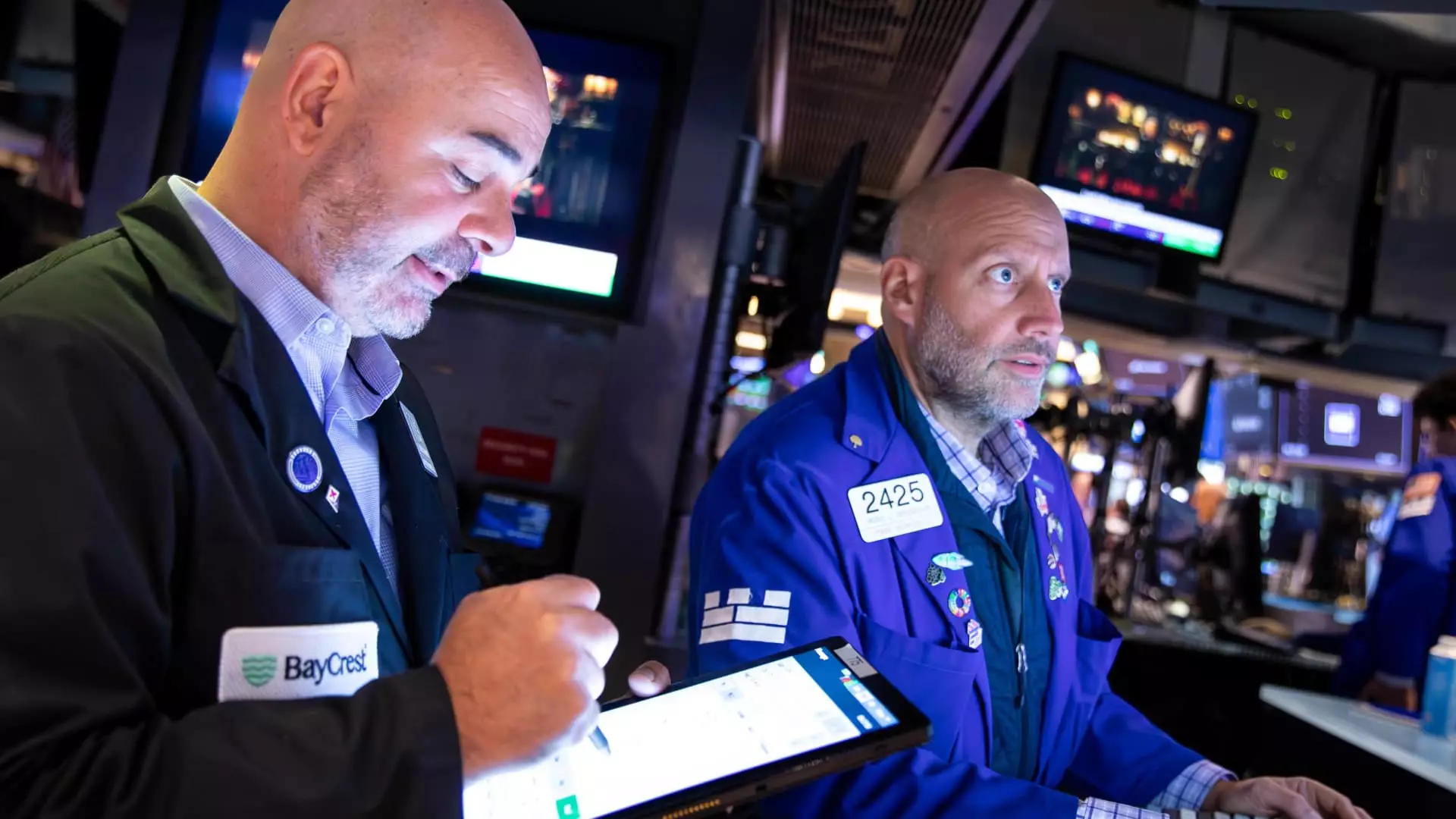The upcoming U.S. presidential election has set the stage for a close contest, significantly influencing financial markets and investment strategies. Financial institutions, such as UBS, are preparing to navigate the tumultuous landscape of equities based on the possible outcomes of the elections. The firm’s strategist, Andrew Garthwaite, has identified two distinct investment baskets reflecting potential gains or losses, depending on whether former President Donald Trump or Vice President Kamala Harris wins the presidency.
Analyzing the potential implications of either candidate’s victory, Garthwaite suggests that Trump’s return to office may bode positively for certain equity sectors. His proposed policies, notably regarding tariffs and regulatory reforms, hint at a landscape favoring financial institutions and domestic manufacturing. Historically, Trump’s administration has been marked by pronounced market volatility, yet a clear trajectory towards more relaxed financial regulations could lead to elevated performance in the financial sector. Garthwaite notes that stocks such as Citigroup and Goldman Sachs are poised to gain from a Trump administration, especially considering past trends where investment banking and capital markets thrived under less stringent regulations.
Conversely, a victory for Harris may direct investment towards companies with a strong consumer presence, particularly those linked to global trade, such as freight logistics and retail brands. Garthwaite highlights that a Harris administration might stimulate demand for businesses with robust ties to China, thus balancing the trade dynamics that could become more strained under a Republican regime. This points to a broader market sentiment that leans towards stability and international trade, favoring certain sectors such as homebuilding and consumer goods.
Specifically focusing on the financial sector, UBS’s outlined beneficiaries align closely with the expectations of a Trump win. Financial stocks are anticipated to flourish under his administration due to their potential for increased merger and acquisition activity and favorable regulatory conditions. Not only have firms like Goldman Sachs reported surging revenues—evident with a 20% rise in investment banking revenues—typically associated with prosperous times, but they are also seen as critical bellwethers for economic health.
However, Garthwaite’s analytical lens does not overlook the repercussions of a rising interest rate environment, which could emerge as a byproduct of inflationary pressures linked to Trump’s tariff policies. This poses a risk to sectors like utilities that tend to suffer when bond yields increase. Such fluctuations in the market underscore the intricate relationship between politics and economic indicators, reminding investors to tread carefully in the wake of political uncertainty.
Stock Trends and Election Implications
As the stock market experiences fluctuations in the lead-up to the election—evident in a recent drop of 0.8% for the S&P 500—investors are advised to monitor the broader market trends closely. Historical data suggests that the week before previous elections usually results in modest median gains, contrasting sharply with current performance. This uncertainty showcases a cautionary tale, as highlighted by Garthwaite, referencing the unpredictable outcomes of elections, reminiscent of the 2016 election and Brexit—a moment that changed the landscape for investors.
Stocks like Nike also illustrate the contrasting fortunes that could unfold depending on electoral outcomes. With shares hitting a 30% decline year-to-date, the athletic wear giant’s exposure to the Chinese market could either hamper or help its recovery based on tariff negotiations and trade relations. A victory for Harris could alleviate concerns surrounding tariffs, potentially enabling Nike to stabilize and innovate without the looming threat of punitive import duties.
Ultimately, the current positioning by financial firms such as UBS underscores a well-considered strategy to navigate the impending market turbulence fueled by the presidential race. The stakes are high; the outcome of the election could set divergent paths for various sectors and individual companies. Investors are advised to remain vigilant, keep an eye on market signals, and recognize the profound effects that political outcomes can herald for economic conditions and stock performance. Through strategic planning and adaptability, market participants can better position themselves in these uncertain times while being prepared for the shifting dynamics that a new administration may introduce.


Leave a Reply